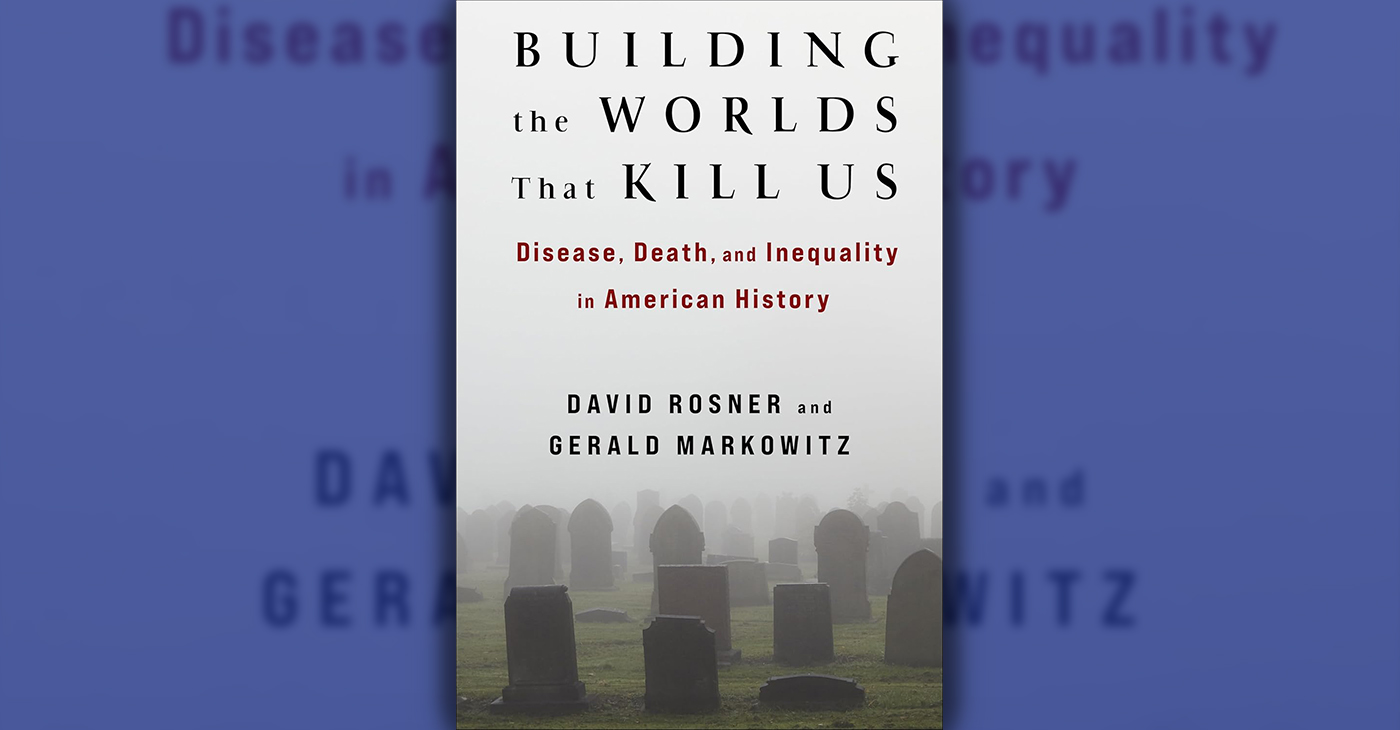Business
31-State Deal Should Make Credit Report Errors Easier to Fix

JULIE CARR SMYTH, Associated Press
COLUMBUS, Ohio (AP) — Three nationwide credit reporting agencies have agreed to fix disputed information on credit reports more quickly, wait longer before adding potentially damaging information on medical debt and scrutinize certain data furnished by outside entities, according to a multistate settlement announced Wednesday.
Ohio Attorney General Mike DeWine announced the pact that Equifax, Experian and TransUnion struck with attorneys general in 31 states. It calls for the agencies to pay a combined $6 million to participating states and to adjust a host of business practices over the next three years.
“It’s a good day for all consumers in the United States,” said DeWine, a Republican. He spearheaded the investigation that led to the deal after reading a 2012 investigation by The Columbus (Ohio) Dispatch about consumers denied car loans, house loans and jobs because of mistakes by reporting agencies.
Other attorneys general praised the deal.
“I am pleased that our agreement brings about reforms that will provide for more effective dealings and better communication between consumers and the credit reporting agencies,” said Alabama Attorney General Luther Strange.
“This is a comprehensive settlement that has taken participating states years to negotiate,” Nevada Attorney General Adam Laxalt said in a statement. “I empathize with those Nevadans who have long struggled with these issues, and am actively working to achieve changes and positive results.”
The agreement requires agencies to:
— Maintain information about problems with entities that furnish them data — such as collection agencies, department stores or banks — and make that information available to states so patterns can be spotted;
— Use a better, more detailed system to share data with those so-called furnishers;
— Set up a more intensive process for complicated disputes, such as those involving identity theft, fraud or mixed credit files in which two people’s identities have been confused;
— Educate consumers about how they can further dispute the outcome of an investigation.
The settlement prohibits credit reporting agencies from adding information about fines and tickets to a consumer’s credit report and bars the addition of medical debt until 180 days after it is reported to give consumers time to work with their insurance companies.
It also allows consumers to obtain an extra free credit report in a 12-month period if a charge they dispute turns out to result in a change to their report. Federal law already allows consumers to get a free copy of their credit report once a year from each of the three reporting agencies.
“We believe that all these changes will directly improve the accuracy of consumers’ credit reports and the quality of service they receive when they correct errors,” DeWine said.
Stuart Pratt, President and CEO of the Consumer Data Industry Association, which represents the credit reporting agencies, said the settlement resulted from collaborative discussions between the parties in Wednesday’s pact and the attorney general of New York, who announced core elements of the deal known as the National Consumer Assistance Plan in March.
“The three nationwide credit reporting agencies have been in compliance with federal and state law, but as we showed in launching the National Consumer Assistance Plan, we do not hesitate to make improvements beyond what the law requires when doing so will benefit consumers,” he said.
Pratt said the most recent comprehensive government study found credit reports are materially accurate 98 percent of the time.
Besides Ohio, states in the settlement were Alabama, Alaska, Arizona, Arkansas, Florida, Georgia, Hawaii, Idaho, Illinois, Indiana, Iowa, Kansas, Louisiana, Maine, Maryland, Massachusetts, Michigan, Missouri, Nebraska, Nevada, New Mexico, North Carolina, North Dakota, Oregon, Pennsylvania, Rhode Island, Tennessee, Texas, Vermont and Wisconsin.
DeWine said he anticipates nonparticipating states will also reap the benefits the settlement calls for the companies to change overall business practices.
Copyright 2015 The Associated Press. All rights reserved. This material may not be published, broadcast, rewritten or redistributed.
Activism
Oakland’s Black Chamber of Commerce Awards 63 Businesses $1,000 Micro Grants
“Our members are essential to Oakland’s economic and cultural fabric,” said Cathy Adams, president of the OAACC. “These grants are a testament to our dedication to fostering business growth and sustainability within our community.” The microgrants are designed to provide vital support for members to strengthen their operations, invest in growth opportunities, or meet pressing needs, Adams added.

By Oakland Post Staff
Last week, the Oakland African American Chamber of Commerce (OAACC) announced the distribution of $63,000 in microgrants to 63 member businesses. These $1,000 grants, generously sponsored by Supervisor Nate Miley, Amazon, and the Tides Foundation, reflect the organization’s goals and unwavering commitment to empowering Black-owned businesses in Oakland.
“Our members are essential to Oakland’s economic and cultural fabric,” said Cathy Adams, president of the OAACC. “These grants are a testament to our dedication to fostering business growth and sustainability within our community.”
The microgrants are designed to provide vital support for members to strengthen their operations, invest in growth opportunities, or meet pressing needs, Adams added.
As part of this initiative, OAACC leaders are encouraging all grant recipients to inspire their communities to support Oakland-based businesses by shopping locally, sharing referrals, and following their social media pages.
For more information about the OAACC and the organization’s initiatives, please visit www.oaacc.org.
Activism
Port of Oakland to Host January Meeting for Interfaith Council of Alameda County
State, county, and city officials have been invited to join ICAC board members and the community to explore effective strategies for addressing these interconnected challenges across Alameda County, including ICAC’s Safe Car Park program expansion and efforts to convert trailers into shelter for the unhoused.

Special to The Post
The Interfaith Council of Alameda County (ICAC) will hold its first meeting of 2025 on Thursday, Jan. 9, at the Port of Oakland, located at 530 Water St. Hosted by the president of the Port of Oakland, the meeting will run from 1-2:30 p.m. and will focus on pressing community issues including environmental justice, housing solutions, and crime and safety.
State, county, and city officials have been invited to join ICAC board members and the community to explore effective strategies for addressing these interconnected challenges across Alameda County, including ICAC’s Safe Car Park program expansion and efforts to convert trailers into shelter for the unhoused.
All are welcome and encouraged to attend and contribute to this important discussion. For more information, visit interfaithAC.org.
Arts and Culture
Book Review: Building the Worlds That Kill Us: Disease, Death, and Inequality in American History
Nearly five years ago, while interviewing residents along the Mississippi River in Louisiana for a book they were writing, authors Rosner and Markowitz learned that they’d caused a little brouhaha. Large corporations in the area, ones that the residents of “a small, largely African American community” had battled over air and soil contamination and illness, didn’t want any more “’agitators’” poking around. They’d asked a state trooper to see if the authors were going to cause trouble.

By Terri Schlichenmeyer
Author: David Rosner and Gerald Markowitz, c.2024, Columbia University Press, $28.00
Get lots of rest.
That’s always good advice when you’re ailing. Don’t overdo. Don’t try to be Superman or Supermom, just rest and follow your doctor’s orders.
And if, as in the new book, “Building the Worlds That Kill Us” by David Rosner and Gerald Markowitz, the color of your skin and your social strata are a certain way, you’ll feel better soon.
Nearly five years ago, while interviewing residents along the Mississippi River in Louisiana for a book they were writing, authors Rosner and Markowitz learned that they’d caused a little brouhaha. Large corporations in the area, ones that the residents of “a small, largely African American community” had battled over air and soil contamination and illness, didn’t want any more “’agitators’” poking around. They’d asked a state trooper to see if the authors were going to cause trouble.
For Rosner and Markowitz, this underscored “what every thoughtful person at least suspects”: that age, geography, immigrant status, “income, wealth, race, gender, sexuality, and social position” largely impacts the quality and availability of medical care.
It’s been this way since Europeans first arrived on North American shores.
Native Americans “had their share of illness and disease” even before the Europeans arrived and brought diseases that decimated established populations. There was little-to-no medicine offered to slaves on the Middle Passage because a ship owner’s “financial calculus… included the price of disease and death.” According to the authors, many enslavers weren’t even “convinced” that the cost of feeding their slaves was worth the work received.
Factory workers in the late 1800s and early 1900s worked long weeks and long days under sometimes dangerous conditions, and health care was meager; Depression-era workers didn’t fare much better. Black Americans were used for medical experimentation. And just three years ago, the American Lung Association reported that “’people of color’ disproportionately” lived in areas where the air quality was particularly dangerous.
So, what does all this mean? Authors David Rosner and Gerald Markowitz don’t seem to be too optimistic, for one thing, but in “Building the Worlds That Kill Us,” they do leave readers with a thought-provoker: “we as a nation … created this dark moment and we have the ability to change it.” Finding the “how” in this book, however, will take serious between-the-lines reading.
If that sounds ominous, it is. Most of this book is, in fact, quite dismaying, despite that there are glimpses of pushback here and there, in the form of protests and strikes throughout many decades. You may notice, if this is a subject you’re passionate about, that the histories may be familiar but deeper than you might’ve learned in high school. You’ll also notice the relevance to today’s healthcare issues and questions, and that’s likewise disturbing.
This is by no means a happy-happy vacation book, but it is essential reading if you care about national health issues, worker safety, public attitudes, and government involvement in medical care inequality. You may know some of what’s inside “Building the Worlds That Kill Us,” but now you can learn the rest.
-

 Activism2 weeks ago
Activism2 weeks agoBooks for Ghana
-

 Arts and Culture3 weeks ago
Arts and Culture3 weeks agoPromise Marks Performs Songs of Etta James in One-Woman Show, “A Sunday Kind of Love” at the Black Repertory Theater in Berkeley
-

 Activism4 weeks ago
Activism4 weeks agoPost News Group to Host Second Town Hall on Racism, Hate Crimes
-

 Activism4 weeks ago
Activism4 weeks agoButler, Lee Celebrate Passage of Bill to Honor Congresswoman Shirley Chisholm with Congressional Gold Medal
-

 Activism3 weeks ago
Activism3 weeks ago‘Donald Trump Is Not a God:’ Rep. Bennie Thompson Blasts Trump’s Call to Jail Him
-

 Bay Area2 weeks ago
Bay Area2 weeks agoGlydways Breaking Ground on 14-Acre Demonstration Facility at Hilltop Mall
-

 Activism4 weeks ago
Activism4 weeks agoDelta Sigma Theta Alumnae Chapters Host World AIDS Day Event
-

 Business4 weeks ago
Business4 weeks agoLandlords Are Using AI to Raise Rents — And California Cities Are Leading the Pushback















































